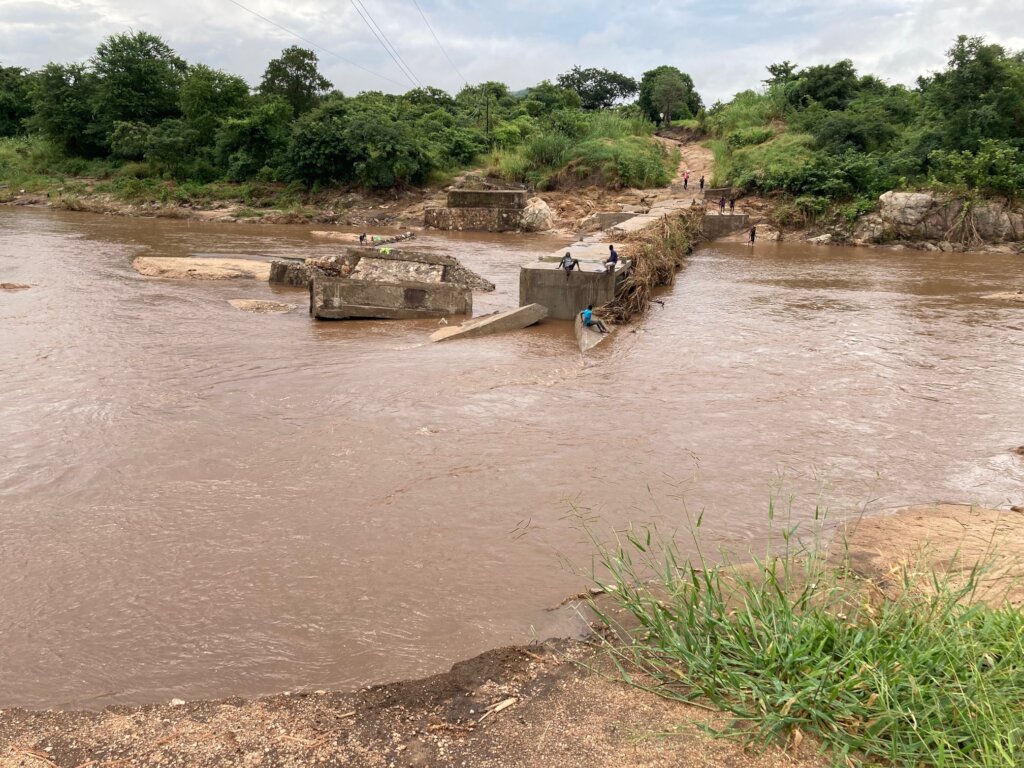By Nao Iwano | PWJ Representative of Beira Office, Mozambique
Once again this year, Mozambique suffered from natural disasters.
Coincidentally, on 25 January 2022, a full year after Cyclone Eloise struck in January 2021, another major tropical cyclone, Ana, struck Mozambique again.
Especially heavy damage was observed in the provinces of Zambezia, Tete, and Nampula, with some 40,000 families (approximately 200,000 people) affected.
Shortly afterward, on 11 March, Cyclone Gombe made landfall in Nampula, causing extensive damage in Zambezia, the neighboring province of Sofala, where PWJ's offices are located. Repeated heavy rains and strong winds caused houses to collapse and rivers to overflow, forcing many people to flee their homes.
Peace Winds Japan (hereafter PWJ) immediately entered Morrumbala District, Zambezia Province, and had a needs assessment of the affected population.
In the villages of Mecaula Village and Chipanga Village, Pinda Locality, located at the foot of Mt. Morrumbala and bordering the Shire River, the riverside resident was displaced across the river from next to Tete province.
Mr. Nfumo's experience as an evacuee from Tete Province.
"My house flooded three times this year alone. My neighbor's house was washed away by the heavy rain. The water came into my house all at once and I didn't have time to prepare my belongings for evacuation. It happened so fast and it was really scary. The location of our original house is no longer safe. We will build a new life here, in Mekaura village"
Evacuated residents have built temporary houses using local materials (grass, tree branches, etc.) to shelter them from the wind and rain. However, it is not easy to collect grass and other materials in the area, where the rains still continue during the rainy season. The temporary shelters are not durable and may collapse in the rains, so there was an urgent need to support the built their houses, especially for vulnerable households.
When heavy rainfall occurs in areas where open defecation is commonplace, rainwater becomes contaminated with excreta. This contaminated rainwater can then become a puddle, affecting drinking water wells and crops that are about to be harvested, leading to infectious diseases such as diarrhea and vomiting, and posing a public health risk.
Our assessment showed that diarrhea and vomiting are common in the Morrumbala District, with some deaths. To prevent the transmission of diarrhea and vomiting, hygiene awareness-raising activities such as hand washing and latrine use are also needed.
In Mozambique, where natural disasters occur every year, PWJ continues to provide assistance with a view to reducing the impact of disasters as much as possible, a view to strengthening the resilience of the affected population, and the hope that next year the damage caused by natural disasters will be a little smaller (and that no natural disasters will occur!). We continue to provide support, praying that the damage caused by natural disasters will be as small as possible in the coming year.
Project reports on GlobalGiving are posted directly to globalgiving.org by Project Leaders as they are completed, generally every 3-4 months. To protect the integrity of these documents, GlobalGiving does not alter them; therefore you may find some language or formatting issues.
If you donate to this project or have donated to this project, you can receive an email when this project posts a report. You can also subscribe for reports without donating.
Support this important cause by creating a personalized fundraising page.
Start a Fundraiser